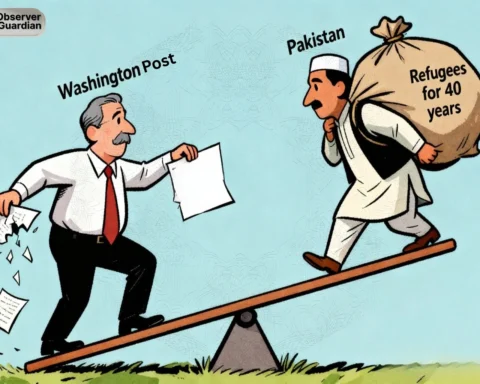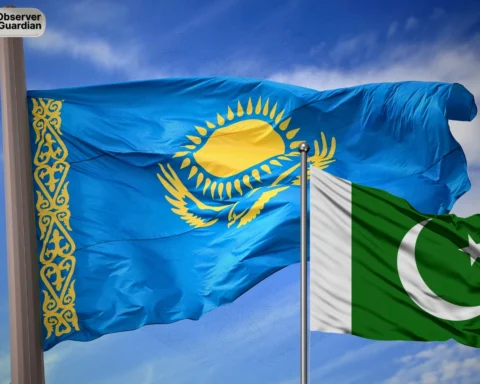Russia’s national identity, resource politics, and geostrategic power are intricately interconnected, constituting a complicated triangle that influences the nation’s internal policy and international standing. The historical, cultural, and ideological narratives that shape Russian national identity influence the state’s perception of its natural resources, not alone as economic assets but as strategic tools of power. The global reliance on Russia’s huge supplies of oil, gas, and minerals provides the Kremlin substantial influence in international affairs, especially in Eurasia and Europe. Collectively, these components form the foundation of Russia’s foreign policy strategy and its quest for great-power status.
The Russian national identity has historically been defined by a feeling of exceptionalism, grounded in the belief in the nation’s distinctive historical fate. Throughout the Tsarist era, Soviet period, and post-Soviet epoch, Russian political culture has prioritized the significance of a robust state, territorial integrity, and opposition to external subjugation. The trauma of the Soviet Union’s dissolution in 1991 created a void in political, economic, and national identity dimensions. Under President Vladimir Putin, the Russian government has actively sought to reestablish a cohesive narrative of national pride, romanticizing imperial legacies and revitalizing Orthodox Christianity and Slavic cultural motifs as foundational elements of identity. This reconstructed identity depicts Russia as a beleaguered stronghold, surrounded by Western antagonism, so justifying a more aggressive foreign policy.
This account of national resilience and exceptionalism directly influences resource politics. Russia perceives its natural resources as both economic assets and representations of national sovereignty, as well as instruments for geopolitical leverage. The nation’s vast energy reserves, especially natural gas and oil, have been important to its political economy and diplomatic influence. The government has exercised stringent control over vital industries via entities such as Gazprom and Rosneft, guaranteeing that energy policy is tightly aligned with national security aims. This integration of resource management with national strategy exemplifies what scholars refer to as “resource nationalism,” in which natural riches is perceived as an extension of governmental authority.
This is particularly visible in Russia’s relations with Europe. The continent’s reliance on Russian gas, delivered via pipelines such as Nord Stream and those traversing Ukraine and Belarus, has afforded Moscow considerable leverage in negotiations. Energy transforms into a geopolitical instrument: supply may be curtailed, contracts altered, and pricing modified to incentivize allies or penalize rivals. The gas disputes with Ukraine in 2006 and 2009 exemplify this technique, leading to energy shortages in multiple European nations and illustrating Russia’s ability to exert coercive control over its resources. Despite the European Union’s endeavours to diversify its energy sources, Russia continues to be a significant entity in the global energy market, and its influence endures.
This resource directly bolsters Russia’s overarching geostrategic objectives. A primary priority of Moscow’s foreign policy is to reestablish control over its “near abroad,” which includes former Soviet republics like Ukraine, Georgia, and the Central Asian nations. Energy diplomacy is essential in this context. For instance, Russia offers subsidized energy to allies such as Belarus, while employing price increases or supply reductions to exert pressure on governments that align with the West. Furthermore, control over pipeline lines has afforded Russia a measure of strategic depth, enabling it to affect regional infrastructure development and impede initiatives such as the EU-supported Southern Gas Corridor intended to circumvent Russian territory.
Beyond its borders, Russia strategically utilizes its resources in conjunction with military strength and international diplomacy. In the Arctic, the melting of ice caps has created new shipping routes and provided access to unexploited energy deposits. Russia has significantly invested in military and scientific infrastructure in the region, reinforcing its territorial claims and indicating its ambition to be the preeminent Arctic state. The Kremlin’s international energy initiatives in nations such as Venezuela, Iran, and Algeria help reinforce connections with governments that share its opposition to Western dominance. These alliances frequently encompass military transactions and diplomatic collaboration in platforms like as the United Nations, so expanding the extent of Russian influence beyond its local vicinity.
However, Russia’s dependence on resource-driven power also exposes weaknesses. The instability of global energy markets, intensified by sanctions and changing demand trends, such as Europe’s switch to green energy, poses enduring threats to the Russian economy. Sanctions aimed at energy firms, investment limitations, and the establishment of LNG infrastructure beyond Russia have begun to diminish its conventional advantages. The excessive dependence on hydrocarbons obstructs economic diversification, exacerbates corruption, and sustains rentier dynamics that impede innovation and productivity. Notwithstanding attempts to shift focus to Asia, particularly via enhanced energy relations with China, Russia’s resource strategy is primarily reactive rather than forward-thinking.
In summary, Russian national identity, resource politics, and geostrategic power constitute a mutually reinforcing triangle that influences the nation’s conduct both domestically and internationally. National identity offers the conceptual foundation that legitimizes the monopolization and militarization of natural resources. These resources, consequently, enhance Russia’s geopolitical aggressiveness, allowing it to exert influence in its immediate vicinity and on the international stage. Nonetheless, the viability of this approach is increasingly under scrutiny as global energy dynamics shift and internal economic difficulties escalate. The ability of Russia to modify its approach without compromising its fundamental character is a critical and unresolved issue for policymakers and experts.







